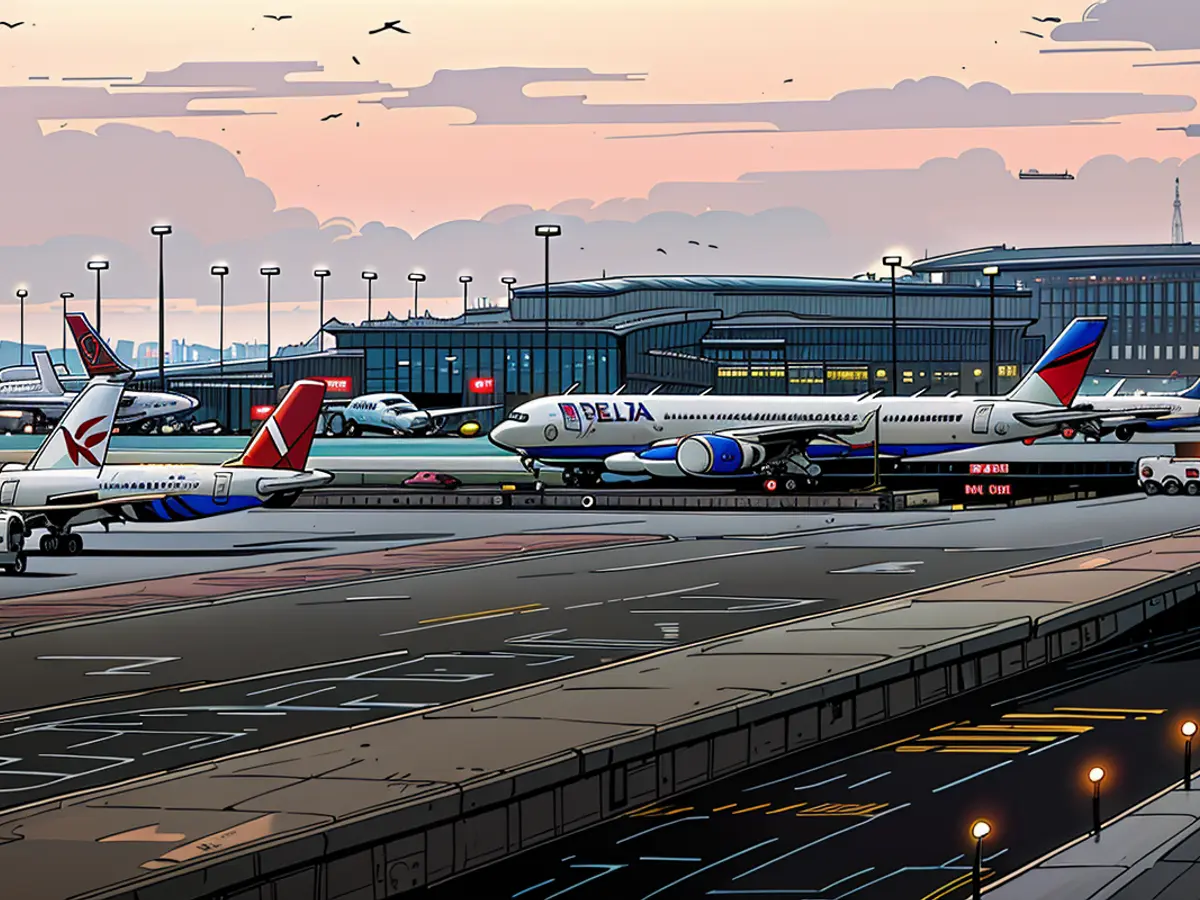Eagerness among Western airline companies towards resuming operations in China post-Covid has waned.
Last year, international carriers aimed to restore direct connections to China, formerly renowned for its outpouring of extravagant tourists. Some even proposed enhancing their flight schedules.
However, fast forward to the present day, and the atmosphere has significantly shifted.
Western airlines are now cutting back on the routes they reintroduced merely a year ago, with industry analysts pointing towards lackluster demand due to China's economic downturn.
Furthermore, the escalating costs and prolonged flight durations caused by Russia's conflict - as Western carriers sidestep Russian airspace - have squeezed their profits and left them less competitive against their Chinese counterparts, which benefit from a traditionally strong preference among domestic travelers for crew members who can communicate in Mandarin.
Added to these challenges, geopolitical tensions have dampened expectations for a complete resurgence of flights between China and key Western nations, as Western tourists predominantly seek alternatives elsewhere.
Steve Saxon, a partner at McKinsey who heads their China research team on travel, logistics, and infrastructure, observed that "Foreign airlines did not restore international capacity to China as swiftly as Chinese airlines restored international capacity from China."
"Even before reaching pre-Covid levels, foreign airlines are now scaling back their flight capacity because they have more profitable opportunities elsewhere within their networks," Saxon added.
Delta Air Lines (DEL) is among the airlines that have postponed their plans to reintroduce their Los Angeles-Shanghai route due to the "slower recovery of travel demand in the market."
British Airways will discontinue its London service to Beijing, the Chinese capital, starting from October 26 until at least November 2025.
The same day, Virgin Atlantic is scheduled to carry out its last flight from Shanghai to London. A spokesperson for the airline stated that the decision to suspend the route, which launched 25 years ago, was a "difficult one." European airlines have been the most affected by the impact of Russia's invasion of Ukraine, according to Saxon.
Impact of Russian Invasion
Chinese leader Xi Jinping announced a "no limits" partnership with Russia just weeks before the full-scale invasion in February 2022 and pledged to condemn sanctions and strengthen ties with Russian President Vladimir Putin. Since the invasion, Chinese airlines have profited from shorter northern routes to Europe and North America, utilizing Russia's vast airspace.
By contrast, airlines from other countries have either been barred from Russian airspace or have elected to circumvent it due to security concerns.
Saxon explained that the detour, often bypassing Ukrainian airspace, can add up to three hours to flight times between Asian and European cities, with a substantial increase in expenses.
"A flight from a European airline may cost an additional $8,000 to $10,000 in fuel for a two-hour increase in flight time," Saxon noted, mentioning the higher crew costs and additional aircraft required to maintain the service.
It appears that Virgin Atlantic is withdrawing due to these reasons. "Operations have become increasingly expensive due to extended flight times, as we are unable to fly over Russia," the airline stated in its earlier communique to CNN.
The airline revealed that each flight to London from Shanghai took two extra hours, and the return flight added an additional hour.
These circumstances put foreign airlines at a disadvantage. If presented with a choice between a 10-hour flight and a 12-hour flight, it's evident that the majority of travelers would opt for the shorter journey, Saxon noted.
Geopolitics at Play
Most flights from North America to China do not traverse Russian airspace and the detour is relatively insignificant for those US airlines affected by airspace restrictions, according to Saxon.
However, flights between the US and China are subject to carefully brokered bilateral agreements.
In late March, the US Department of Transportation boosted the weekly quota of round trips that Chinese carriers can fly to and from the US to 50, up from 35 earlier in the year.
However, this figure is still a small fraction of the more than 150 weekly round trips allowed by each side before controls were imposed in early 2020 due to the coronavirus.
The two countries have become involved in a multitude of disputes, from advanced semiconductors to disagreements in the South China Sea.
Shukor Yusof, founder of Endau Analytics, which monitors the aviation industry, stated that relations between the world's two largest economies are "a crucial aspect of the aviation industry that cannot be neglected."
"We are entering a challenging phase with China and the Western world, and there will undeniably be ramifications that cannot be downplayed, as the aviation industry is a global industry," Yusof said.
While airlines may hope to base their strategies solely on business dynamics, Yusof pointed out that the industry is in fact "government-driven," with China being particularly active in promoting domestic airlines.
Given the economic downturn in China and the impact of the Russian invasion, Western airlines are faced with challenging situations. The lackluster demand due to China's economic downturn has led them to cut back on routes they reintroduced last year. Moreover, the escalating costs and prolonged flight durations caused by bypassing Russian airspace have squeezed their profits, making them less competitive against their Chinese counterparts.








